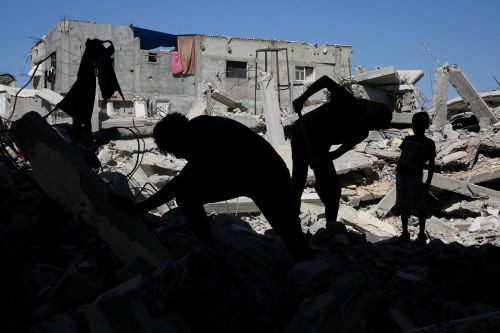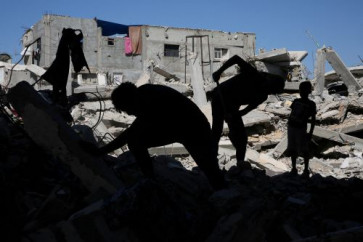Popular Reads
Top Results
Can't find what you're looking for?
View all search resultsPopular Reads
Top Results
Can't find what you're looking for?
View all search resultsWho might contribute to a temporary international mission to Gaza and why?
With their history of jihadi-inspired unrest and terrorism, both Indonesia and Malaysia have an interest in a swift resolution to the Gaza conflict.
Change text size
Gift Premium Articles
to Anyone
R
ecently, President Joko “Jokowi” Widodo concluded what was likely his last official visit to the United Arab Emirates. As a parting gesture, President Mohammed bin Zayed decorated him with the highest honor the Emirates can bestow on a foreign dignitary, the Sheikh Zayed Award.
The visit saw a flurry of new agreements signed, focusing on investment, clean energy and socio-cultural cooperation, further building on the Comprehensive Economic Partnership Agreement (CEPA) that provides duty-free access to 80 percent of Emirati exports to the Indonesian market. The goal is to more than double the current US$4 billion in annual trade over the next decade.
Beyond these economic ties, the relationship between the UAE and Indonesia is also strongly driven by science and technology, as symbolized by two iconic projects: the UAE’s partnership in the construction of Indonesia’s new smart capital city and a mangrove research project in Bali. These projects will highlight environmental protection and sustainability, addressing the critical concern of protecting shorelines from rising sea levels, a concern shared by both nations.
The broad complementarity between the two countries extends to various other sectors like energy and logistics – highlighted by DP World’s new agreement with its Indonesian partners.
Yet, the relationship’s unique bond, initiated as early as 1990 by founding president Sheikh Zayed’s visit to Jakarta, is rooted in shared spirituality, advocacy for tolerance and rejection of extremism. Indonesia successfully overcame its own challenges in the turbulent post-Soeharto years when jihadi extremism threatened to undermine the fledgling democracy by dealing a blow to its economy through attacks like the infamous Bali bombings.
But Indonesia stood the test thanks to the efforts of two Muslim mass organizations, Nahdlatul Ulama and Muhammadiyah. These organizations, with over 120 million followers in a country of 280 million, are natural allies for the UAE in its drive to counter extremism and promote a culture of tolerance and inclusivity. In recognition of their role, President bin Zayed symbolically honored them during his meeting with President Jokowi.
Can this closeness translate into action on the global stage? This question arises considering the timing of an article published by UAE Deputy Foreign Minister and Special Envoy Lana Nusseibeh in the Financial Times.



















